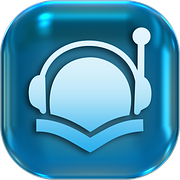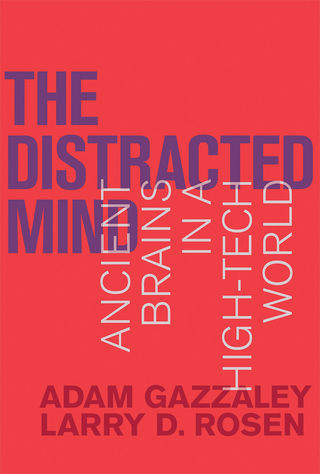Forgiveness
Reading Books Is on the Decline But Audiobooks Are Rising
Our distracted minds are to blame!
Posted October 6, 2016

A recent New York Times article reported that:
“Sales of adult books fell by 10.3 percent in the first three months of 2016, and children’s books dropped by 2.1 percent. E-book sales fell by 21.8 percent, and hardcover sales were down 8.5 percent. The strongest categories were digital audiobooks, which rose by 35.3 percent.”
The Times proffered several explanations including the lack of a “hit” book that draws readers to purchase that and other books and a decline in leisure reading (in one study the National Endowment of the Arts found that in 2015 only 43% of American adults had read a work of literature for pleasure in the previous year).
I think that the explanation is simpler. When you read a hardback, paperback or e-book it is very difficult to multitask and the research shows that we all – and I mean all – love to try to do more than one thing at a time. When you listen to a book your hands are free to type or tap and your mind is free to wander. No page turning required!
My lab has been studying distraction and multitasking in a variety of ways and our conclusions match what others have found:
-
 Source: unsplash/pixabay.com
Source: unsplash/pixabay.comStudents, adults, office workers and other studied groups appear to be able to maintain attention and focus for 3-5 minutes at a time before being distracted.
- Studying students only “study” 65% of the time and are distracted most often by a need to check in with their social world through texting, email and social media.
- Distraction appears to emerge from one of several issues: (1) omnipresent accessibility of technology, (2) poor executive functioning including faulty decision making and wandering attention, (3) anxiety about needing to check in with social media and other communication modalities and (4) boredom.
- Technology use is often mediated by some combination of these four issues, which then produces distracted minds.
- All generations (including Baby Boomers, Generation X, Net Generation and iGeneration) have increased their attempts to multitask in the past few years. 87% of the iGeneration youth (born in the 1990s) believe that they can multitask nearly any pair of tasks. Even two-thirds of Baby Boomers believe that they can juggle any pair of tasks.
- We are constantly in need of “checking in” with our smartphone even without an alert or notification. In one study we had 216 adult students install a smartphone app that monitored their checking behavior. They unlocked their phones 60 times a day (about 4 times an hour) for a total of 220 minutes on their phone which works out to 3-4 minutes per check-in.
- When we are distracted we are only able to focus on the distracting information and not the task we were doing. [Try this experiment: Turn on any television channel such as CNN that has scrolling text as well as a live journalist discussing the news and try to read the scroll and listen to the journalist at the same time. You can even try to switch rapidly back and forth between the two. I guarantee that you will not be able to understand both and in fact if you focus on one the other recedes so far into the background that you get absolutely nothing from that information stream.]

We are so enmeshed with our smartphones that nearly all of us experience phantom pocket vibrations at least once a week. Many of us pat our pockets or check our purse often just to make sure that our phone is still there. If we misplace our phone panic ensues.

In our new book, The Distracted Mind: Ancient Brains in a High-Tech World, Dr. Adam Gazzaley and I make a case for precisely why our ancient brains are not wired to juggle multiple streams of information and offer solid strategies to make your brain function better in our technology-rich world. The book is available on amazon as well as MIT Press website.


